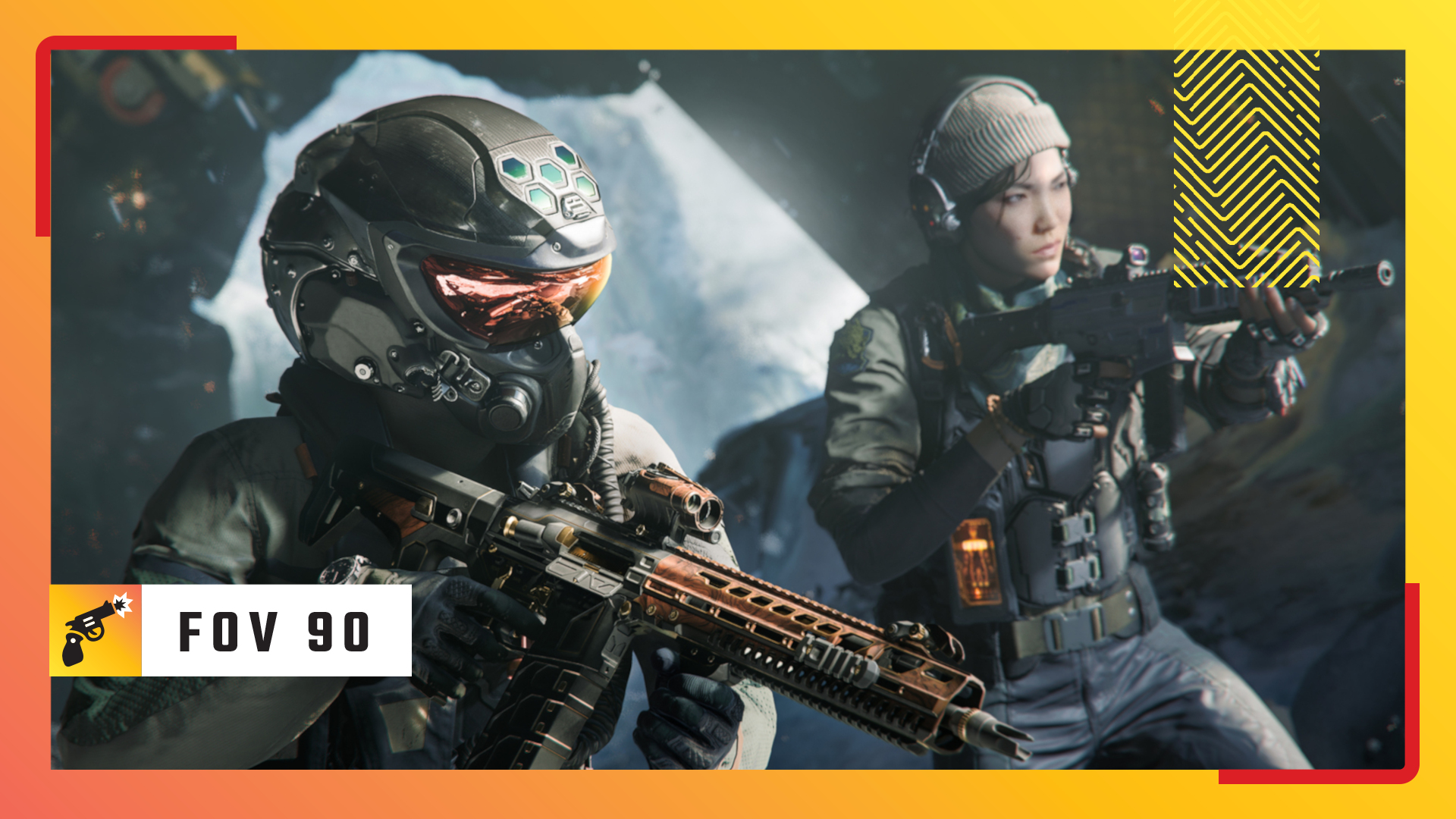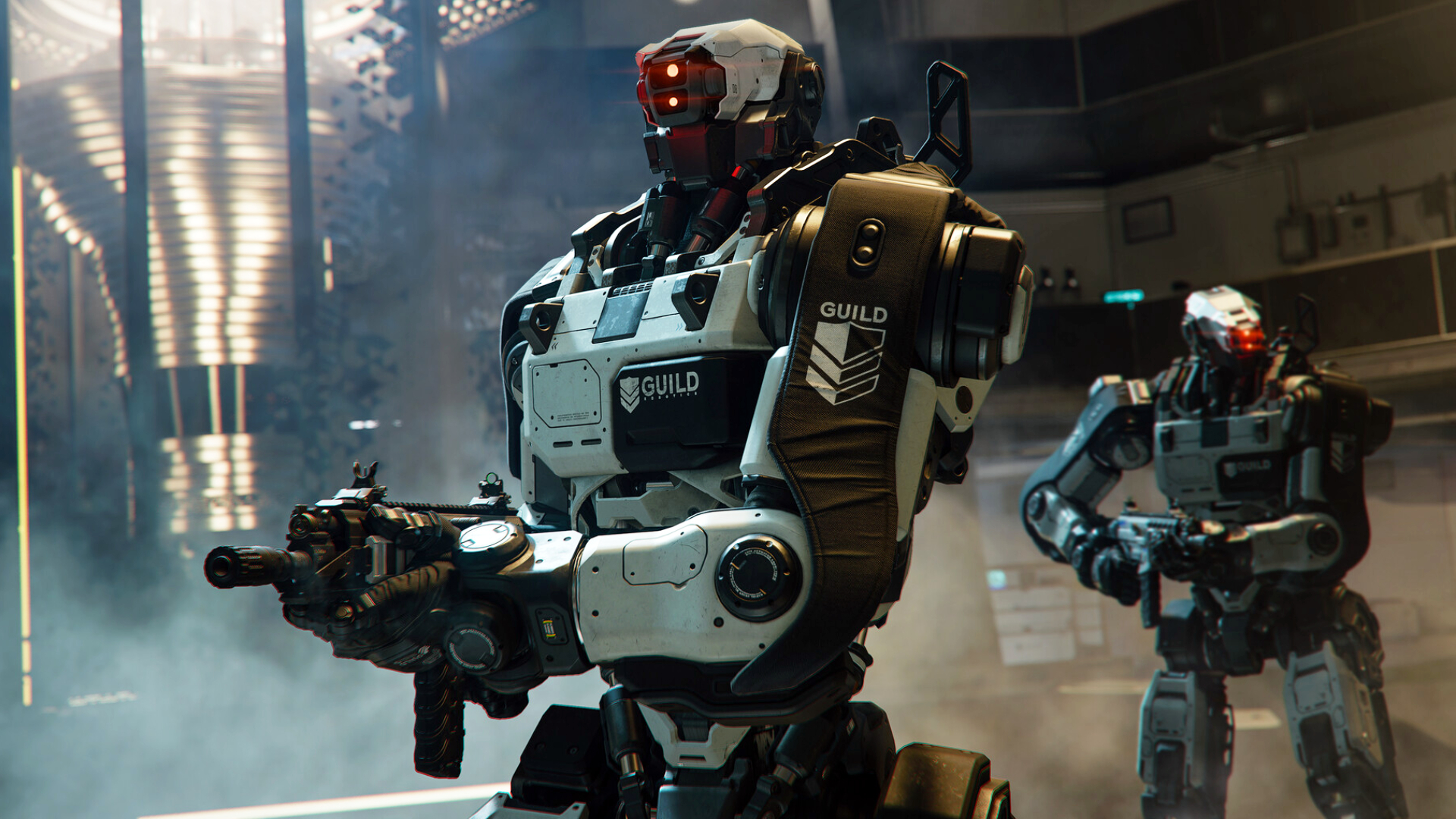Black Ops 7 has problems, but Call of Duty recognizes where the wind is blowing: The triumphant return of loose SBMM and persistent lobbies in the FPS
FOV 90: Call of Duty's "minimal SBMM" experiment makes a good impression.

Keep up to date with the most important stories and the best deals, as picked by the PC Gamer team.
You are now subscribed
Your newsletter sign-up was successful
Want to add more newsletters?

Every Friday
GamesRadar+
Your weekly update on everything you could ever want to know about the games you already love, games we know you're going to love in the near future, and tales from the communities that surround them.

Every Thursday
GTA 6 O'clock
Our special GTA 6 newsletter, with breaking news, insider info, and rumor analysis from the award-winning GTA 6 O'clock experts.

Every Friday
Knowledge
From the creators of Edge: A weekly videogame industry newsletter with analysis from expert writers, guidance from professionals, and insight into what's on the horizon.

Every Thursday
The Setup
Hardware nerds unite, sign up to our free tech newsletter for a weekly digest of the hottest new tech, the latest gadgets on the test bench, and much more.

Every Wednesday
Switch 2 Spotlight
Sign up to our new Switch 2 newsletter, where we bring you the latest talking points on Nintendo's new console each week, bring you up to date on the news, and recommend what games to play.

Every Saturday
The Watchlist
Subscribe for a weekly digest of the movie and TV news that matters, direct to your inbox. From first-look trailers, interviews, reviews and explainers, we've got you covered.

Once a month
SFX
Get sneak previews, exclusive competitions and details of special events each month!

Welcome to FOV 90, an FPS column from staff writer Morgan Park. Every week, I'll be covering a topic relevant to first-person shooter enjoyers, spanning everything from multiplayer and singleplayer to the old and the new.
My first night with Black Ops 7 went as well as expected. After scoping out the first few missions of the bizarre co-op campaign with friends, we hopped into 6v6 multiplayer, making a point to stick to the "open" playlists with "minimal" skill-based matchmaking.
As I feared after the open beta, Black Ops 7 is shaping up to be another weak year for Call of Duty multiplayer, shining a light on the series' streak of diminishing returns. Much like Modern Warfare 3 (2023) to Modern Warfare 2 (2022), Blops 7 is very much an expensive expansion for Blops 6: Guns now have sci-fi greebling and Titanfall angles, but behave the same as last year. Its big movement "innovation," the wall bounce, is barely there. Maps are plentiful and pretty, but remain in a structural rut so predictable in 2025 that you don't really need to play them to know their layout (it's almost always a box with three lanes).
Blops 7 is giving me every reason to hang it up early and return to Battlefield 6, except I've been successfully charmed by two things it does well: Loose skill-based matchmaking, and persistent lobbies.
I used to think the "anti-SBMM" crowd in Call of Duty was simply YouTubers and streamers advocating for a matchmaking algorithm that favors their own high skill. That is absolutely part of it, but there's a real argument to be made for the variety of random placement. After a three-hour session last night, Call of Duty's new low-SBMM initiative is, surprisingly, fine. Good, even.
A few matches were total stomps one way or the other, but most were fairly close, and interestingly, the presence of super sweaty players was unusually low—you can always identify them because they're never playing the objective but they are habitually sliding around corners and using the most hideous gun skins you'll ever see.
It took returning to older server-based shooters like Team Fortress 2 earlier this year to remind me that the FPS felt more casual before SBMM took over in the 2010s. When you only group together players who play like you, you end up with matches that feel exactly the same. Under the looser grip of Blops 7, matches were less predictable and consistently chill.
If open matchmaking is bringing out the normal side of Call of Duty once again, then it was a great decision to also bring back persistent lobbies, Blops 7's other big win, at the same time.
Keep up to date with the most important stories and the best deals, as picked by the PC Gamer team.
It sounds like such a minor background detail to automatically keep players together from one match to the next, but the effect is immediately apparent. Since most people stick around for at least two to three matches, you start to recognize the names on the other team, develop rivalries, and pick up on their habits. It's sort of like a classic server browser experience, but inherently fleeting.

Sometimes, persistence means the guy who made your last match hell is now your clutch teammate. Other times, you develop a wordless synergy with a stranger, or decide to stick around because your team is actually capturing flags in Domination. Occasionally, a lobby is just weird in a way you don't mind. Last night, one lobby was treated to a multi-part story from two high school friends recounting a fight that happened at school. Thanks to persistent lobbies the story wasn't cut off after a match ended, so I didn't miss the stunning conclusion where one of them ate pizza that night.
Jokes aside: Persistent lobbies are a big step toward Call of Duty becoming a social space again, instead of a series of isolated beatdowns. Of course, that swings both ways. Sometimes you'll find yourself persisting in a room full of people you'd very much like to avoid for one reason or another. For that scenario, Activision included a handy "Find a new lobby" button.
Is Blops 7 the best game in which to enjoy these "new old" features of FPS past? Hell no. Battlefield 6 also has minimal SBMM in its official matchmaking, plus a server browser that allows for always-on servers (when it's not buggy or filled with XP farms). It's the better game without a doubt, but Call of Duty deserves some credit for finally trying a more organic matchmaking method—one that flies in the face of its own internal testing that suggests players prefer SBMM.
In fact, it's remarkable that both of the year's big tentpole military shooters are prioritizing social play in ways that were quickly going extinct in the genre just a handful of years ago.

Morgan has been writing for PC Gamer since 2018, first as a freelancer and currently as a staff writer. He has also appeared on Polygon, Kotaku, Fanbyte, and PCGamesN. Before freelancing, he spent most of high school and all of college writing at small gaming sites that didn't pay him. He's very happy to have a real job now. Morgan is a beat writer following the latest and greatest shooters and the communities that play them. He also writes general news, reviews, features, the occasional guide, and bad jokes in Slack. Twist his arm, and he'll even write about a boring strategy game. Please don't, though.
You must confirm your public display name before commenting
Please logout and then login again, you will then be prompted to enter your display name.

